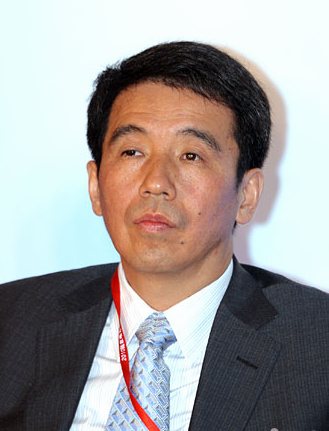Central bank official calls for more clarity in eurozone
 0 Comment(s)
0 Comment(s) Print
Print E-mail
China Daily, November 11, 2011
E-mail
China Daily, November 11, 2011
 |
|
Xie Duo, director-general of the financial market department at the People's Bank of China. [Filo photo] |
The eurozone rescue fund needs more clarity before Beijing can take any investment decision, a senior central bank official said.
Analysts said that the comment indicates the door remains open for China to help Europe.
Xie Duo, director-general of the financial market department at the People's Bank of China, said on Wednesday that China remains confident about the euro and the European economy but the current financial arrangement of the European Financial Stability Facility (EFSF) is not clear.
A range of measures were decided by the European Union before this month's G20 summit in Cannes but the political confusion in Greece and the worsening situation in Italy cast doubts on these measures. "We need to know more about the inner structure and financial arrangement (of the rescue fund) before we take decisions," Xie said during an interview in Brussels at a high-level China-EU conference.
One of the measures discussed in Europe is to boost the firepower of the EFSF from the current 440 billion euro ($598 billion) to 1 trillion euro to prevent the sovereign debt crisis from spreading to other countries.
The decision, in late October, has not been supported by convincing technical arrangements or confirmed sources of funding, at least not so far.
Xie also said that China cannot afford the collapse of the European economy. The two sides should join forces in fighting the crisis, he said.
"His comments clearly are a sign that China has not closed the door on investment in the bailout fund for rescuing debt-ridden Europe," Sun Lijian, senior economist at Fudan University in Shanghai, said.
China does not want to see a predominant dollar in the global currency regime, because it will put China in a very "embarrassing" position given its $3.2 trillion pileup of foreign exchange reserves. "China needs to diversify risks and the euro provides a channel for that."
Analysts also said the economy of Europe, as China's biggest trade partner, will have a bearing on China's own economic growth.
China's exports increased 15.9 percent to $157.49 billion in October, the lowest growth in five months, partly due to weakened demand from Europe. Sales growth to the EU slowed to 7.5 percent in October, compared with 9.8 percent in September, Customs data showed.
Xie's comment came amid intensifying concern across the financial markets as a result of the political turmoil in Greece and Italy and surging yields on Italian government bonds above 7 percent.
This is the point where investors largely lose faith in a country's debt-repayment abilities.
The Dow Jones industrial index closed down 389 points, or 3.2 percent. In Hong Kong, the benchmark Hang Seng Index tumbled 5.25 percent while the Shanghai Composite Index dropped 1.8 percent on Thursday.
Quoting promises that China will continue to hold euro-denominated assets, Xie said the euro and European economy will become stronger if the EU radically implements structural reforms.
"Both Xie and Zhu have made it clear that China needs to see more technical details before taking further steps," Sun said. "China needs to assess the risks and it should not waste its money if Europe fails to show resolve and viable bail out plans."
Dai Xianglong, chairman of the National Council for Social Security Fund and a former governor of the central bank, said China offered a $4.5 billion rescue fund through the International Monetary Fund during the 1997-1998 Asian financial crisis and that mode could be adopted again this time.
China can also boost its foreign investment by encouraging more of its private companies to invest in Europe, Dai said at the International Finance Forum 2011 Annual Conference in Beijing on Thursday. He noted that equity investment will be more profitable than simply buying treasury bonds in European countries.
"The downside risk of the eurozone has risen to an unprecedented high level," said Ding Chun, director of the Center for European Studies at Fudan University. "China should act in accordance with its own capabilities, and it should be based on our economic and political interests."






Go to Forum >>0 Comment(s)